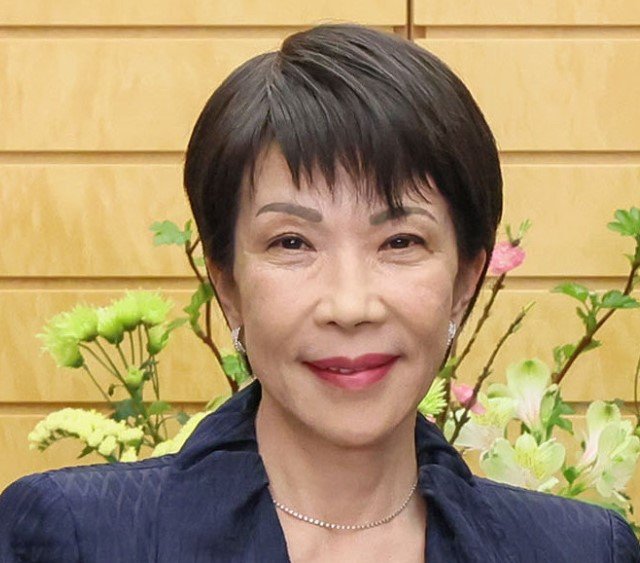Japan’s first female prime minister, Sanae Takaichi, is grappling with a centuries-old tradition that bars women from entering the sacred sumo ring, known as the dohyo. As the ongoing Fukuoka tournament in 2025 nears its end, she remains undecided on whether to defy the ban and present the prime minister’s trophy to the winner.
This issue highlights a clash between modern leadership and deep-rooted cultural norms in Japan’s national sport. With the tournament set to conclude soon, all eyes are on Takaichi to see if she will challenge the Japan Sumo Association’s rules or respect the tradition tied to Shinto beliefs about purity.
The Sumo Ring Ban Explained
The dohyo is considered sacred in professional sumo, rooted in Shinto religion where women are seen as impure due to menstrual blood. This belief has kept women from stepping into the ring for hundreds of years.

While amateur sumo allows women as wrestlers and referees, professional events strictly enforce the ban. Officials purify the ring with salt before matches to maintain its holiness.
The prime minister’s trophy presentation is a key ritual, usually done inside the dohyo by male leaders. For Takaichi, this creates a unique challenge as Japan’s first woman in the role.
Takaichi’s Rise and Views
Sanae Takaichi became Japan’s prime minister in October 2025, marking a historic milestone after a political vacuum. Known for her conservative stance and admiration for figures like Margaret Thatcher, she has a background in communications and internal affairs.
Takaichi enjoys heavy metal music and plays drums, adding a personal flair to her public image. Her mentor was former leader Shinzo Abe, and she aims to steer Japan toward stronger defense and economic policies.
On women’s issues, she supports tradition in sumo, as noted by government spokespeople. Chief Cabinet Secretary Minoru Kihara said she wants to honor sumo culture, hinting she might skip entering the ring.
Her election has sparked debate on gender progress, with some viewing it as a step forward despite her views on topics like family roles.
Past Controversies Over the Ban
The ban has sparked uproar before. In 1990, Mayumi Moriyama, Japan’s first female chief cabinet secretary, was denied entry to present a trophy, with sumo officials defending their male-only space.
In 2000, Osaka Governor Fuse Ohta had to give a prize from outside the ring after repeated rejections. She called it outdated and pushed for change, but the association held firm.
A 2018 incident saw women ordered off the dohyo during a medical emergency when a mayor collapsed. Nurses trying to help were told to leave, drawing global criticism for prioritizing tradition over life-saving aid.
These events show ongoing tension between sumo customs and calls for equality. Public outcry has grown, but the sport resists major shifts.
Here is a timeline of key past incidents:
| Year | Event | Outcome |
|---|---|---|
| 1990 | Mayumi Moriyama seeks to present trophy | Request denied by sumo association |
| 2000 | Fuse Ohta wants to enter Osaka ring | Presents prize from walkway instead |
| 2018 | Women perform emergency aid on dohyo | Ordered off, sparking widespread backlash |
Public and Expert Reactions
Reactions to Takaichi’s dilemma are mixed. Some fans praise her respect for tradition, seeing it as preserving sumo’s unique heritage.
Others urge her to challenge the ban, arguing it harms Japan’s image on gender equality. Women’s rights groups say allowing her in could set a positive example without harming the sport.
Social media buzzes with opinions. Posts highlight irony: a female leader barred from a national ritual. Experts note sumo faces declining popularity, and modernizing could attract younger audiences.
Polls show about 60 percent of Japanese support lifting the ban for special cases like this, based on recent surveys. International media calls it a test of progress in a conservative society.
Potential Outcomes and Impact
If Takaichi enters the dohyo, it could force sumo to adapt, possibly leading to broader reforms. She might gain support from progressives but face backlash from traditionalists.
Opting out means presenting the trophy elsewhere, avoiding conflict but missing a chance to lead on equality. Government sources suggest this is likely, with a decision expected soon.
This choice could affect her leadership image amid other challenges like economic pressures and regional tensions with China. It ties into wider discussions on women in power, especially as Japan ranks low in global gender gap reports.
- Respect Tradition: Keeps sumo unchanged, appeals to conservatives.
- Push for Change: Signals progress, inspires future female leaders.
- Compromise Option: Present trophy near the ring, balancing both sides.
Whatever happens, it underscores evolving norms in Japan. As the Fukuoka tournament wraps up, the world watches this blend of politics and sport.
What do you think about Takaichi’s decision? Share your views in the comments and spread this story to join the conversation on tradition versus equality.








